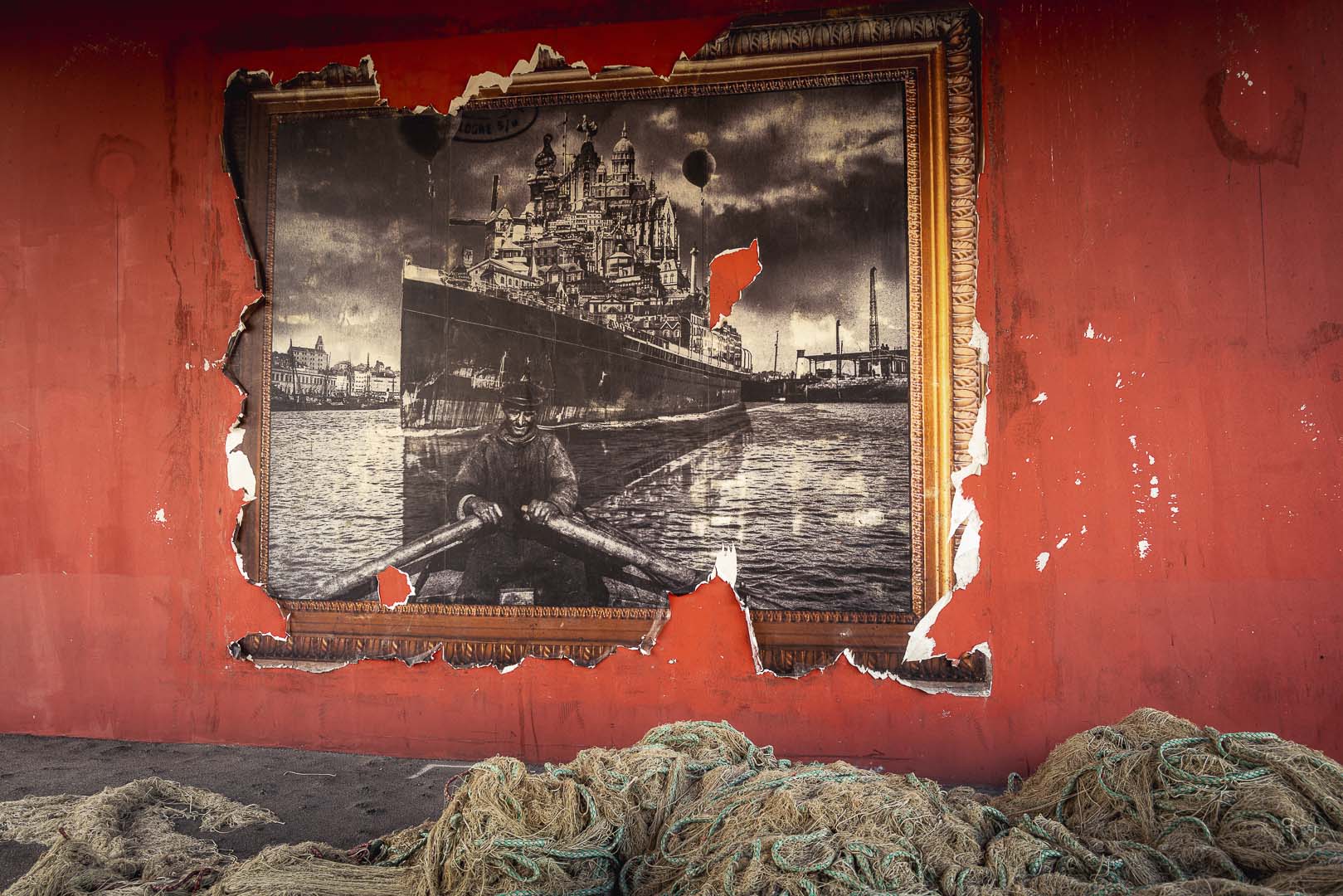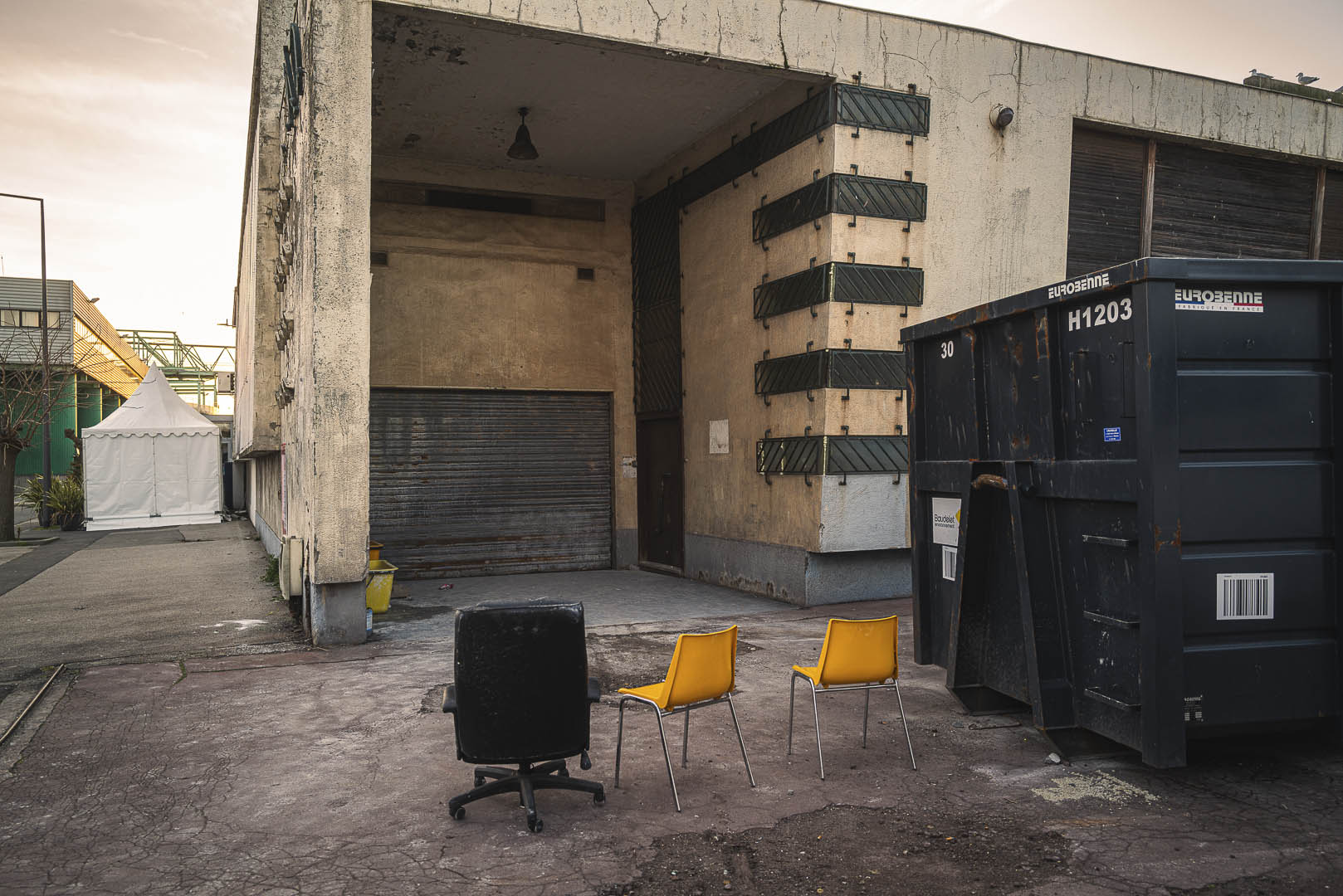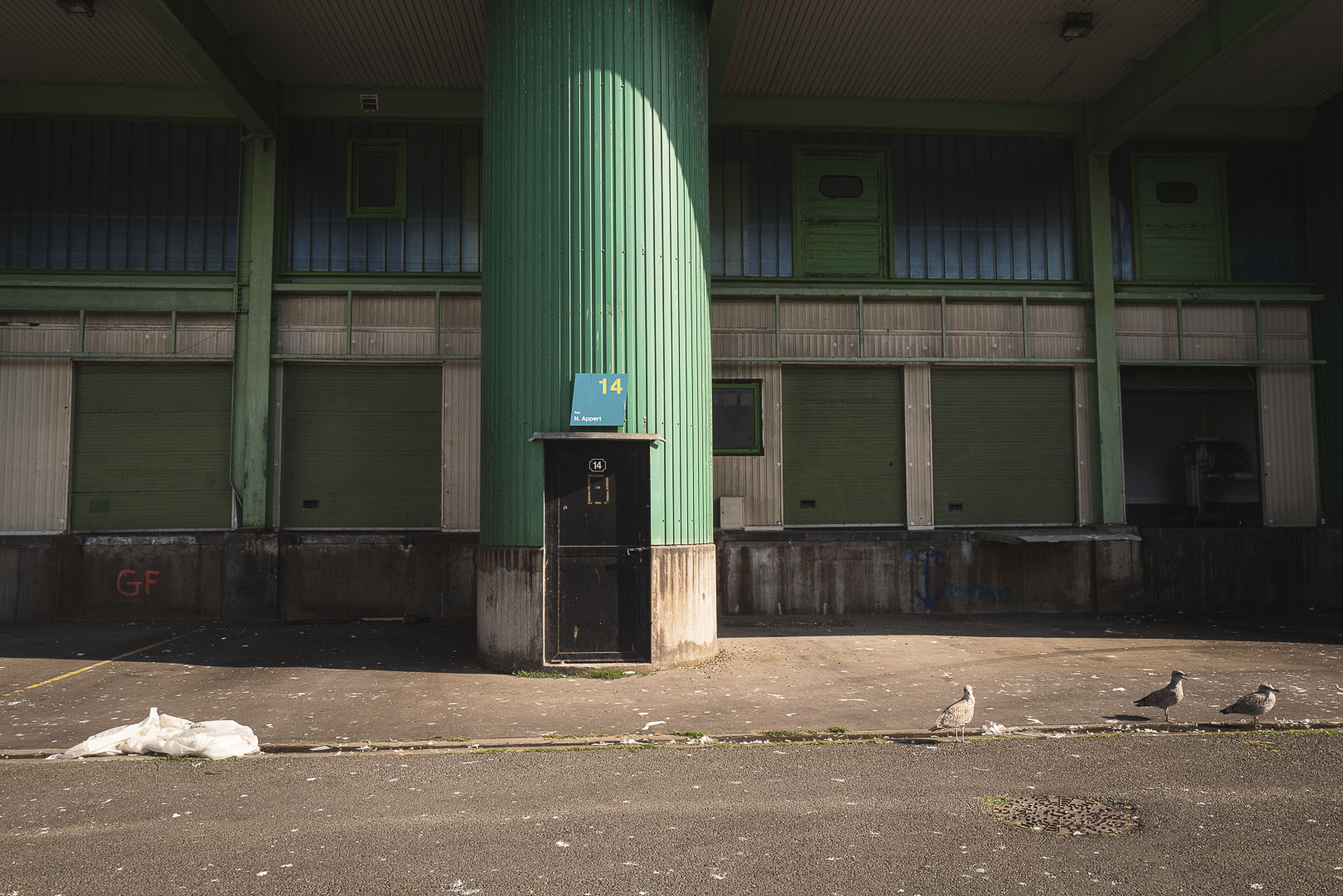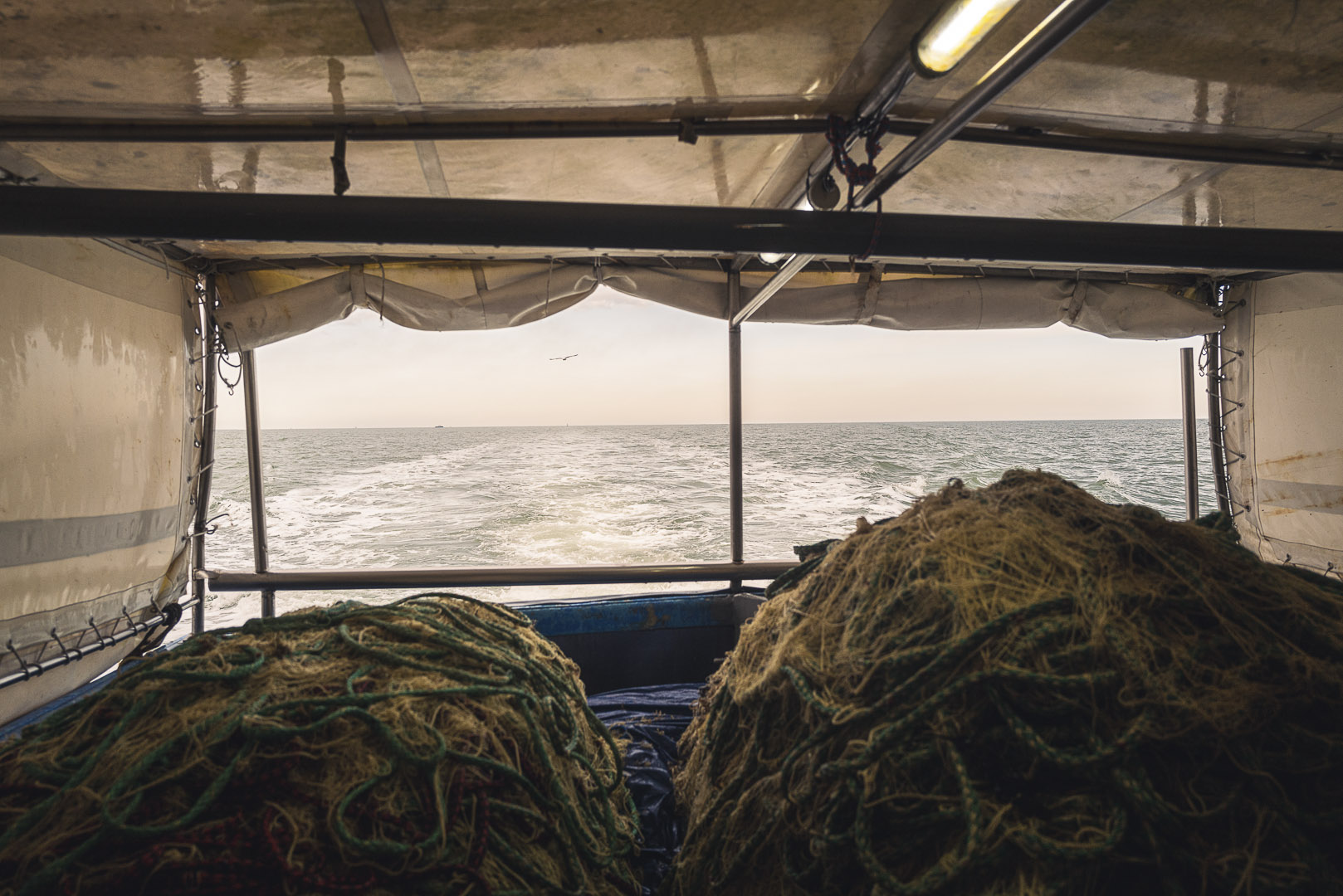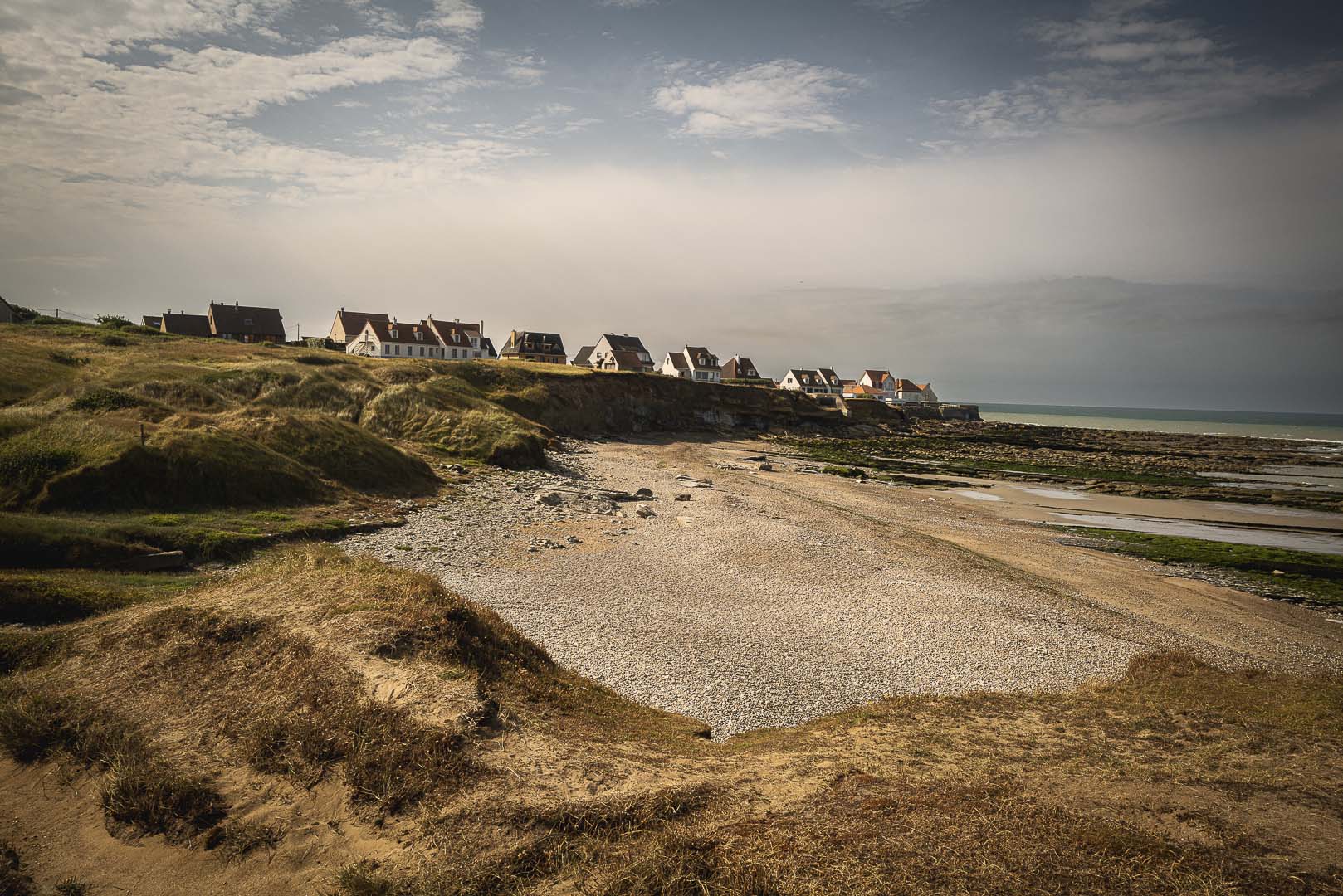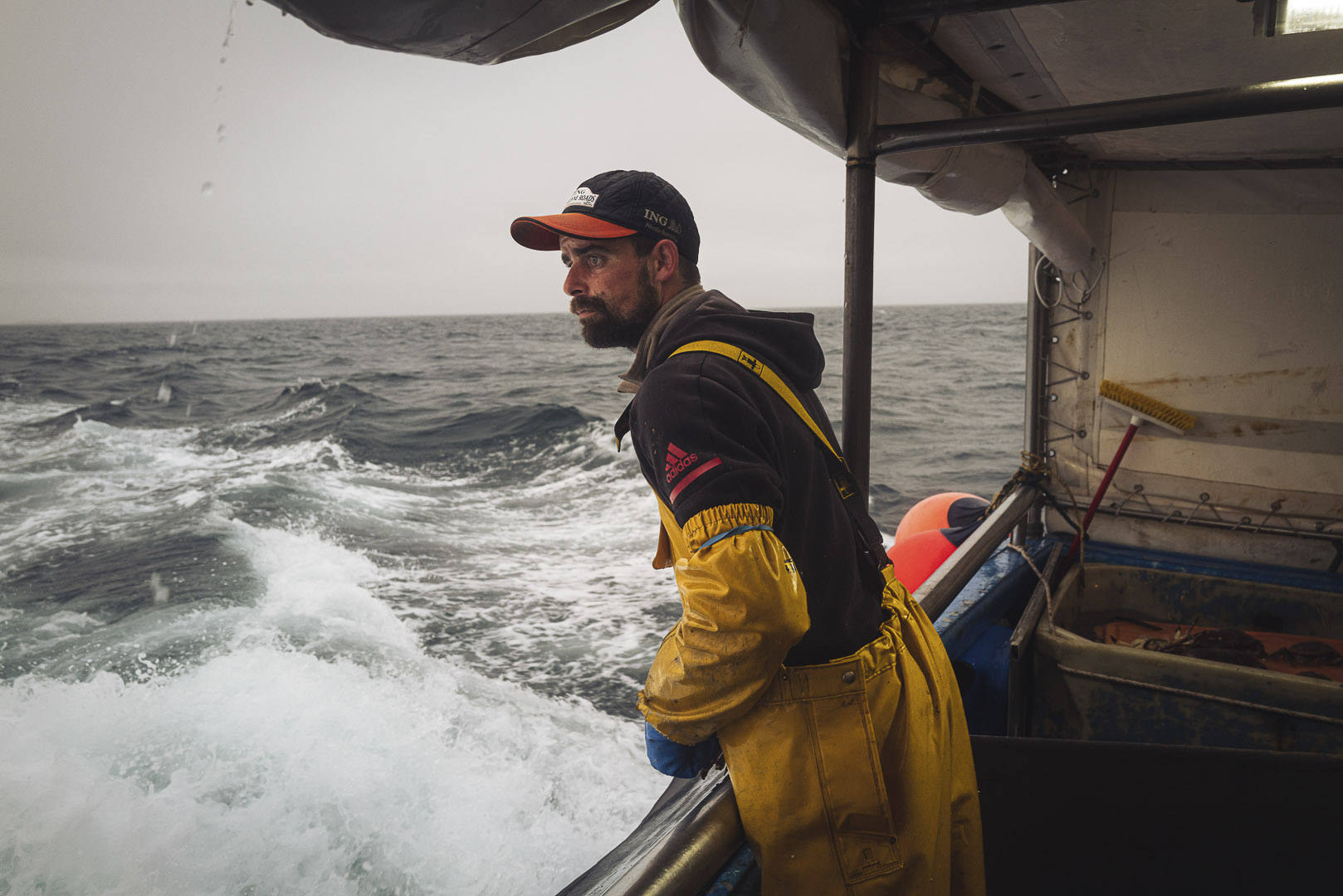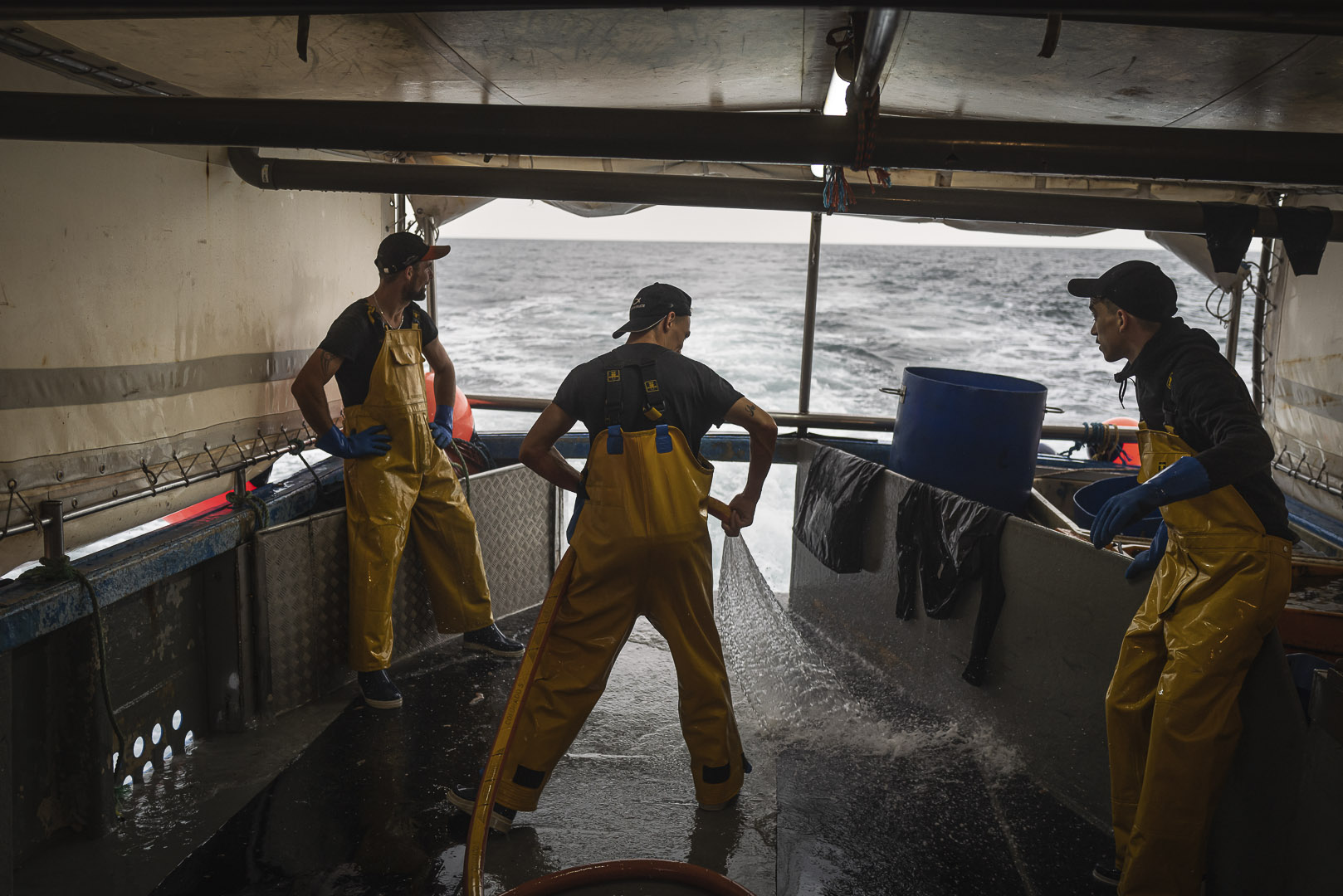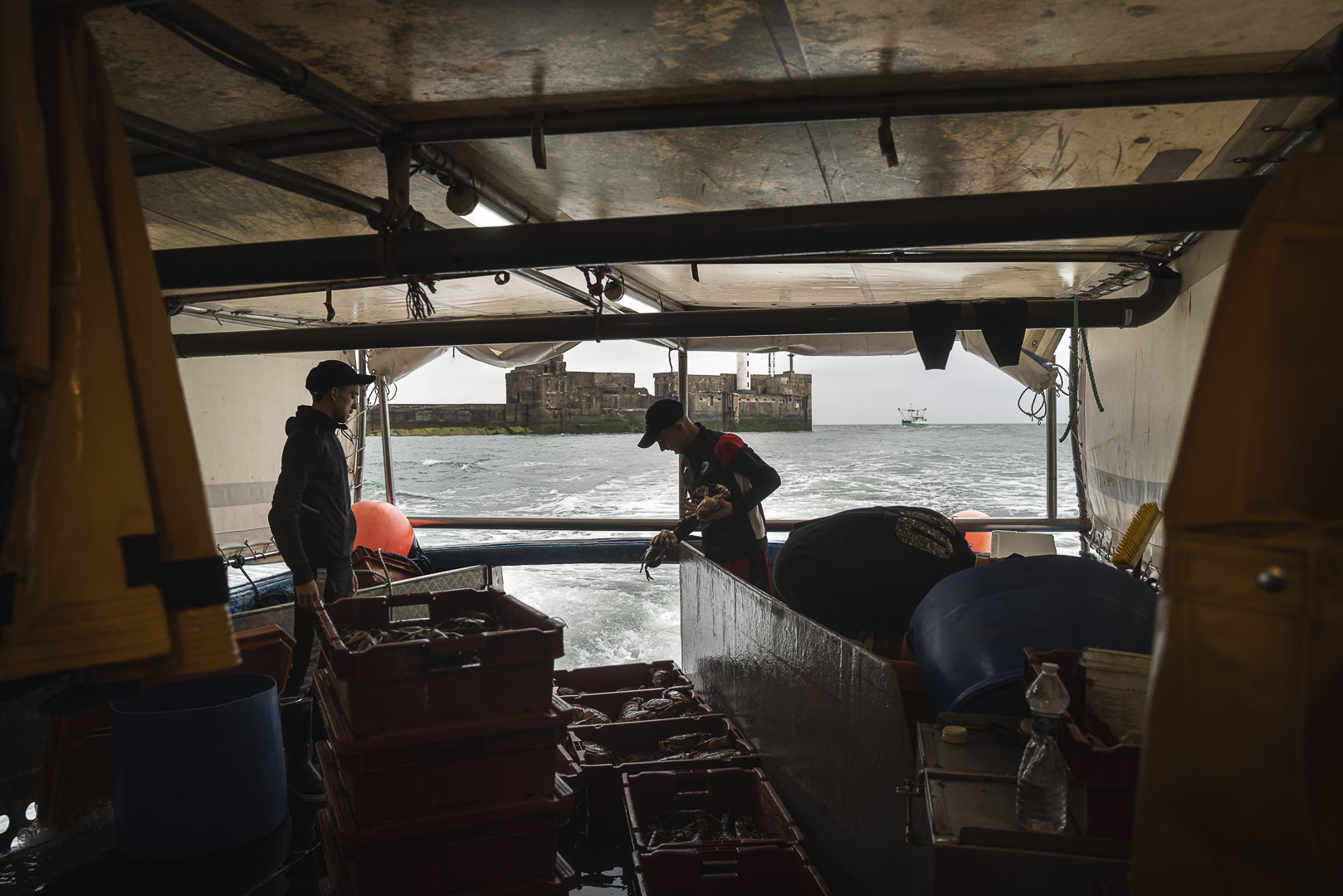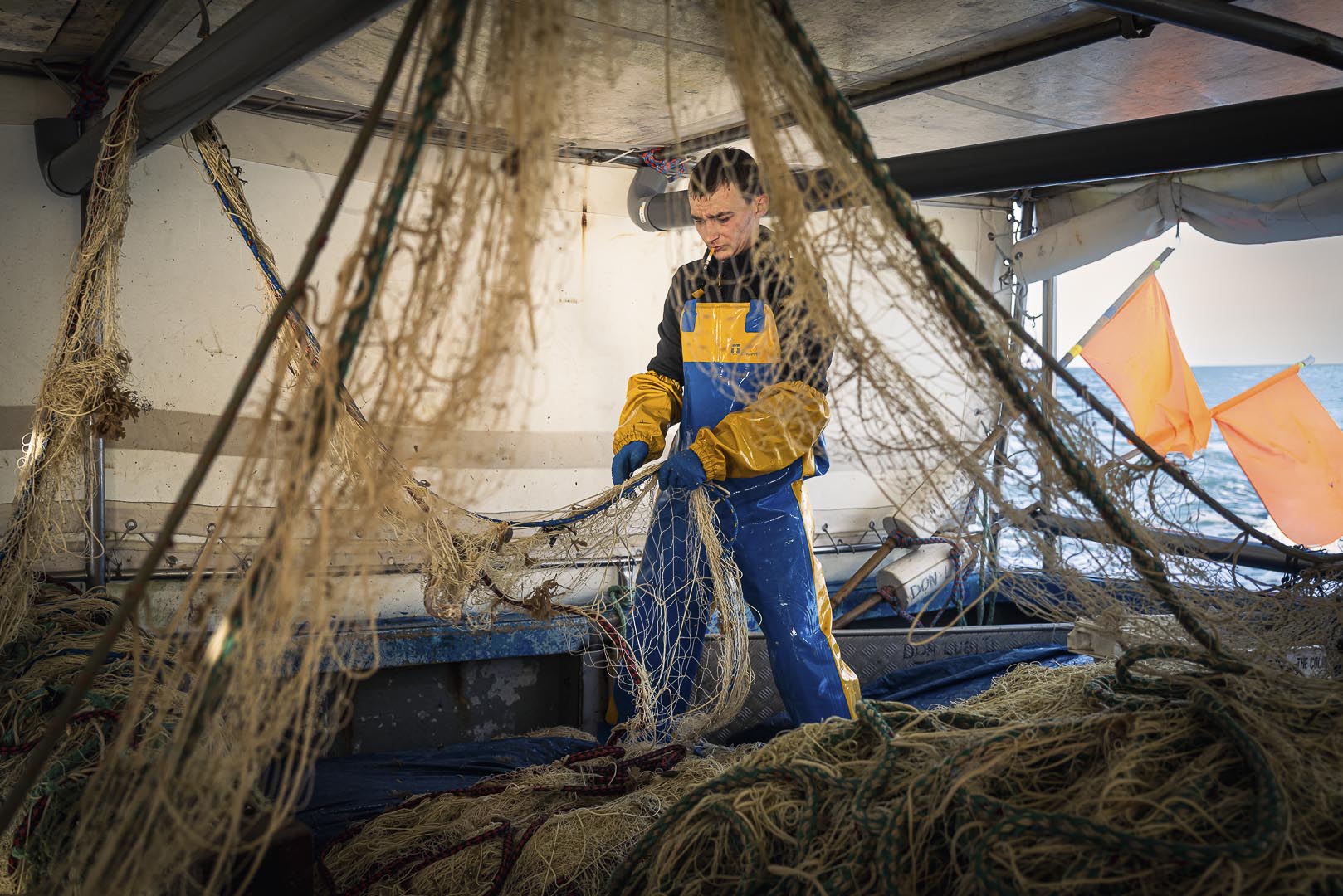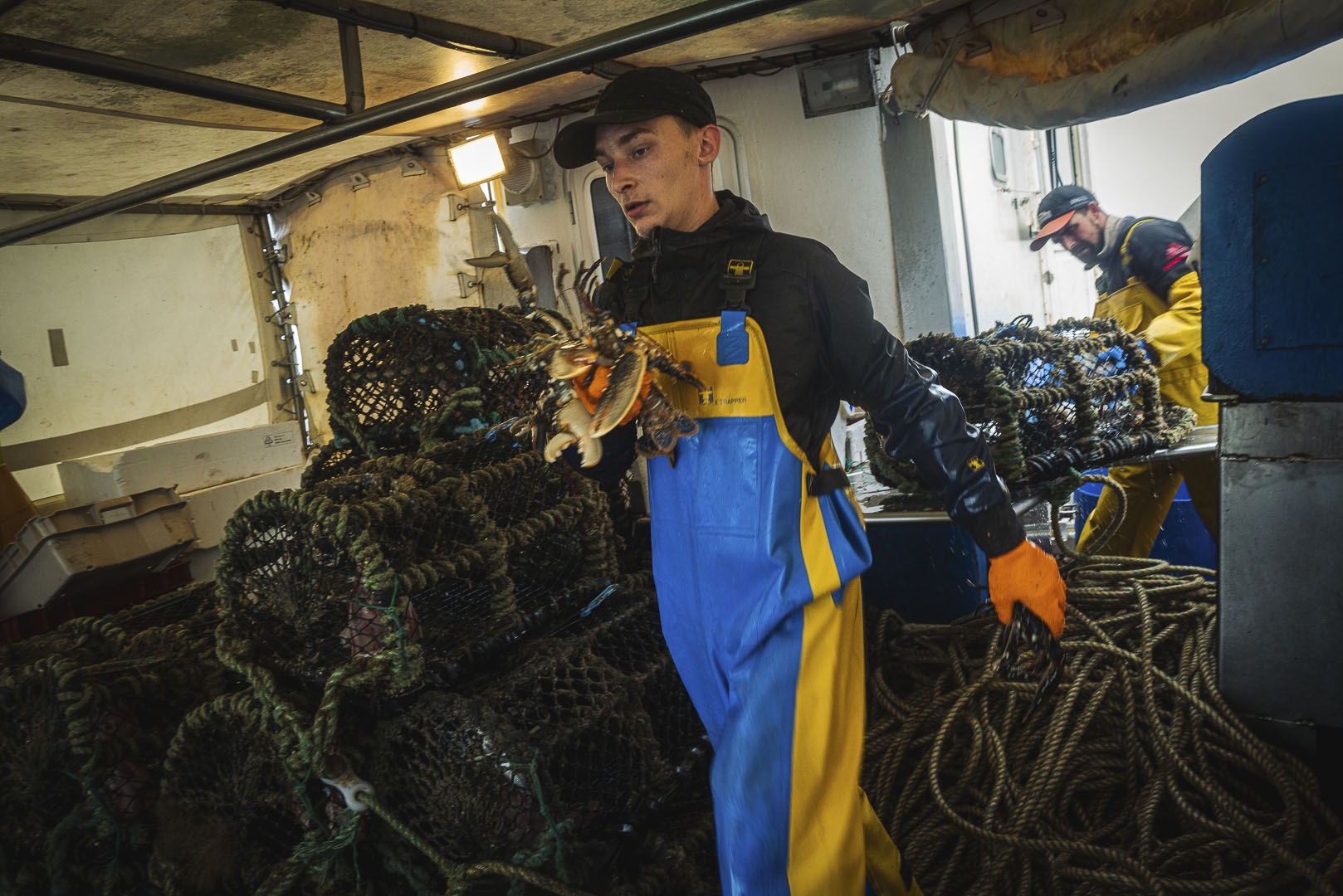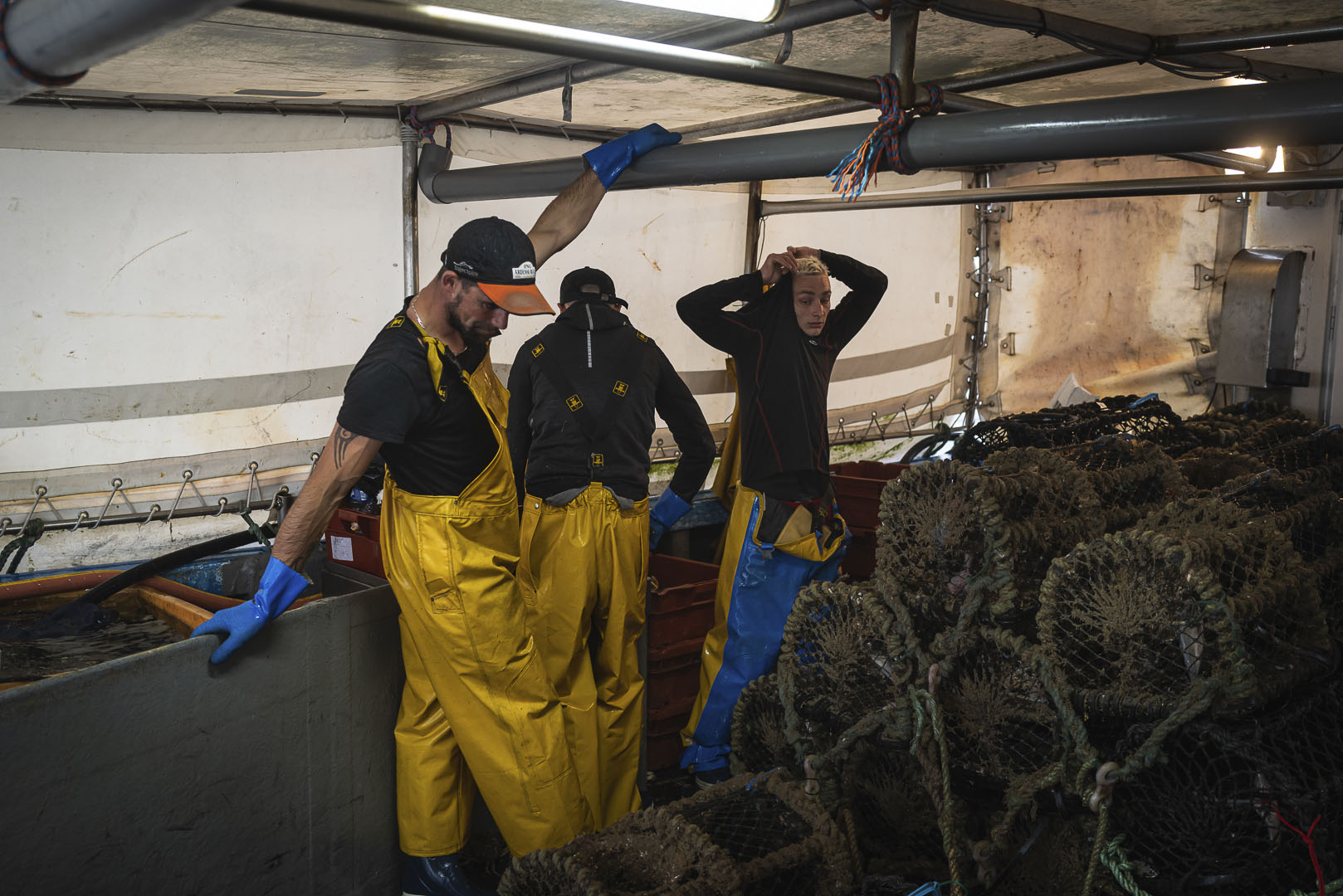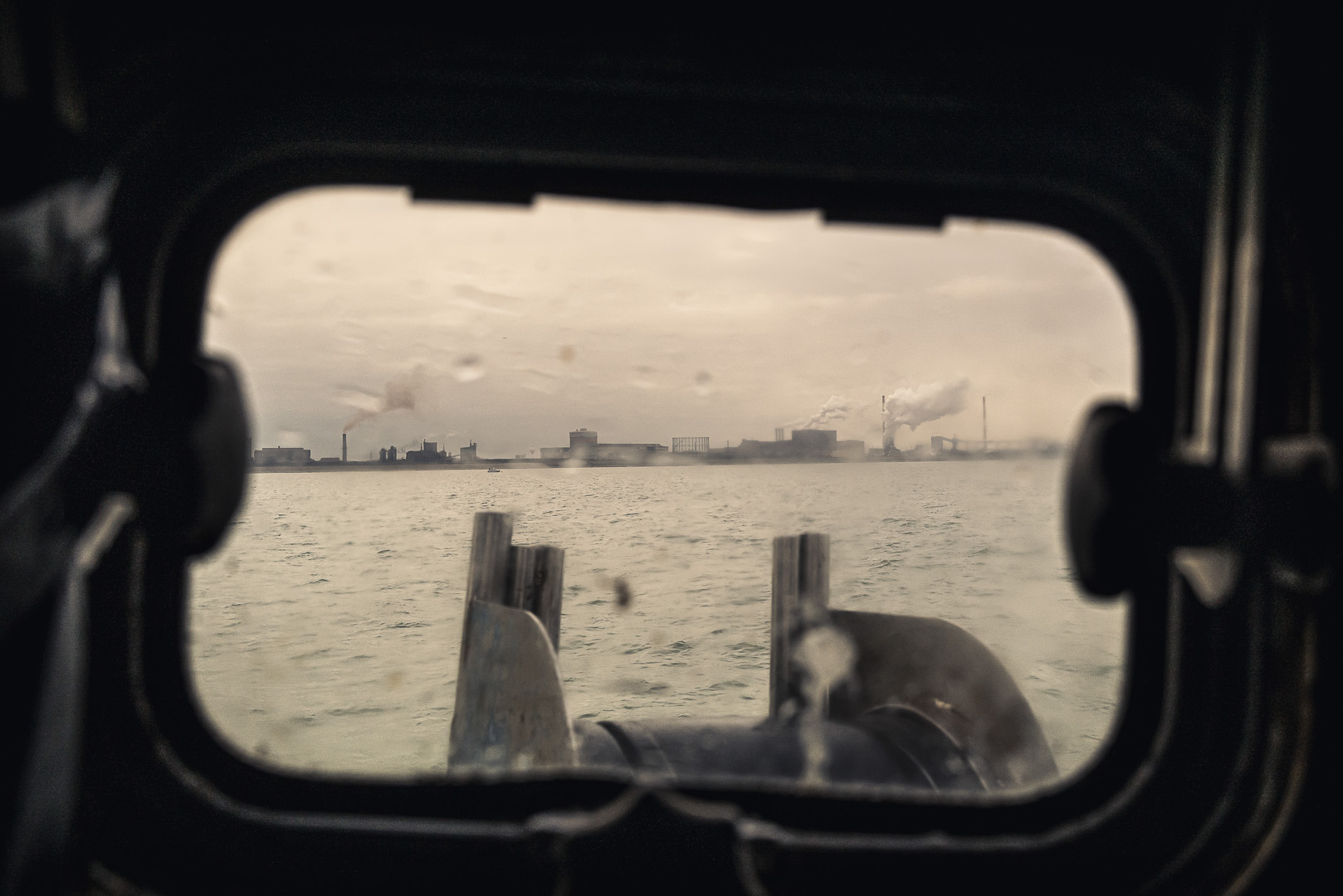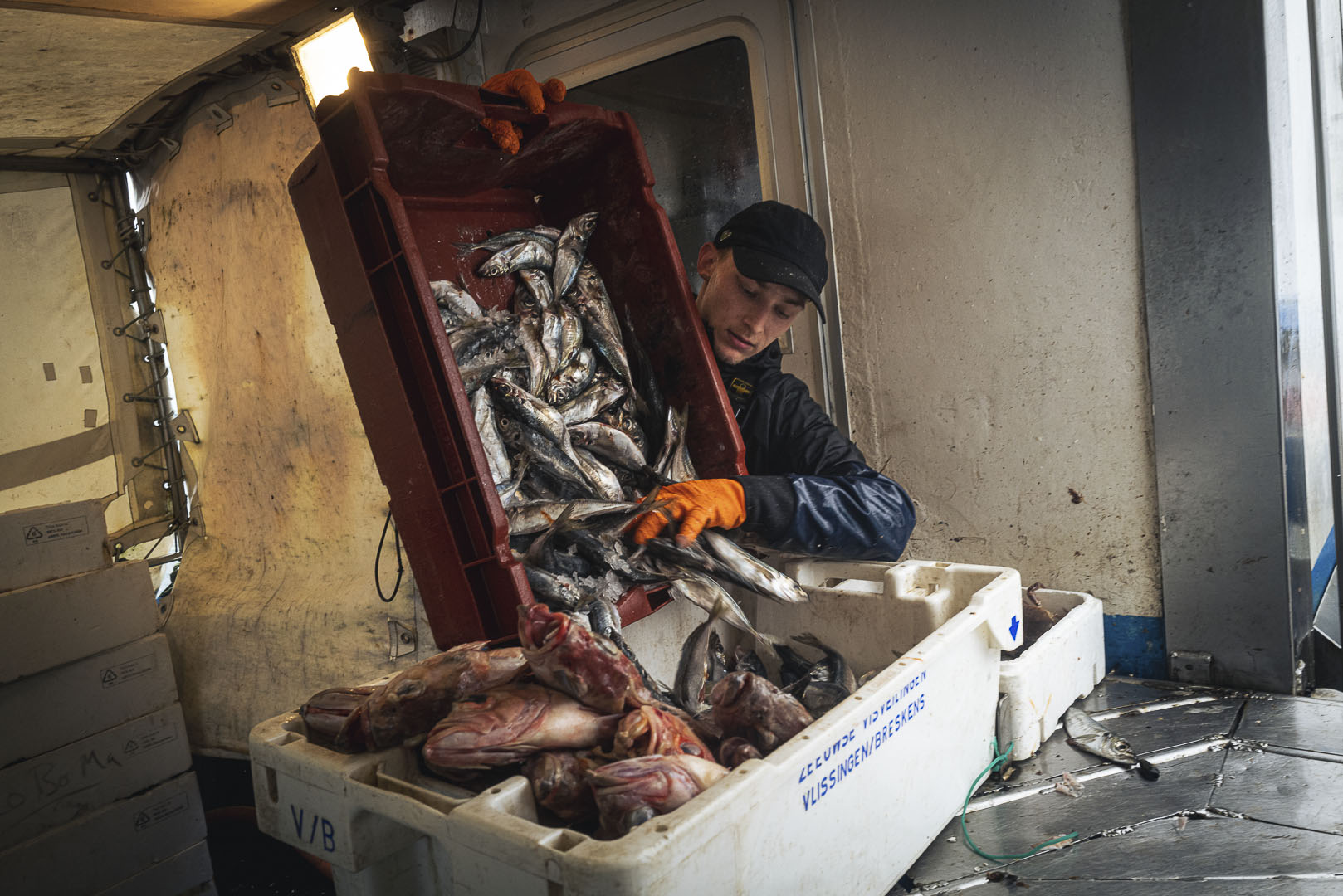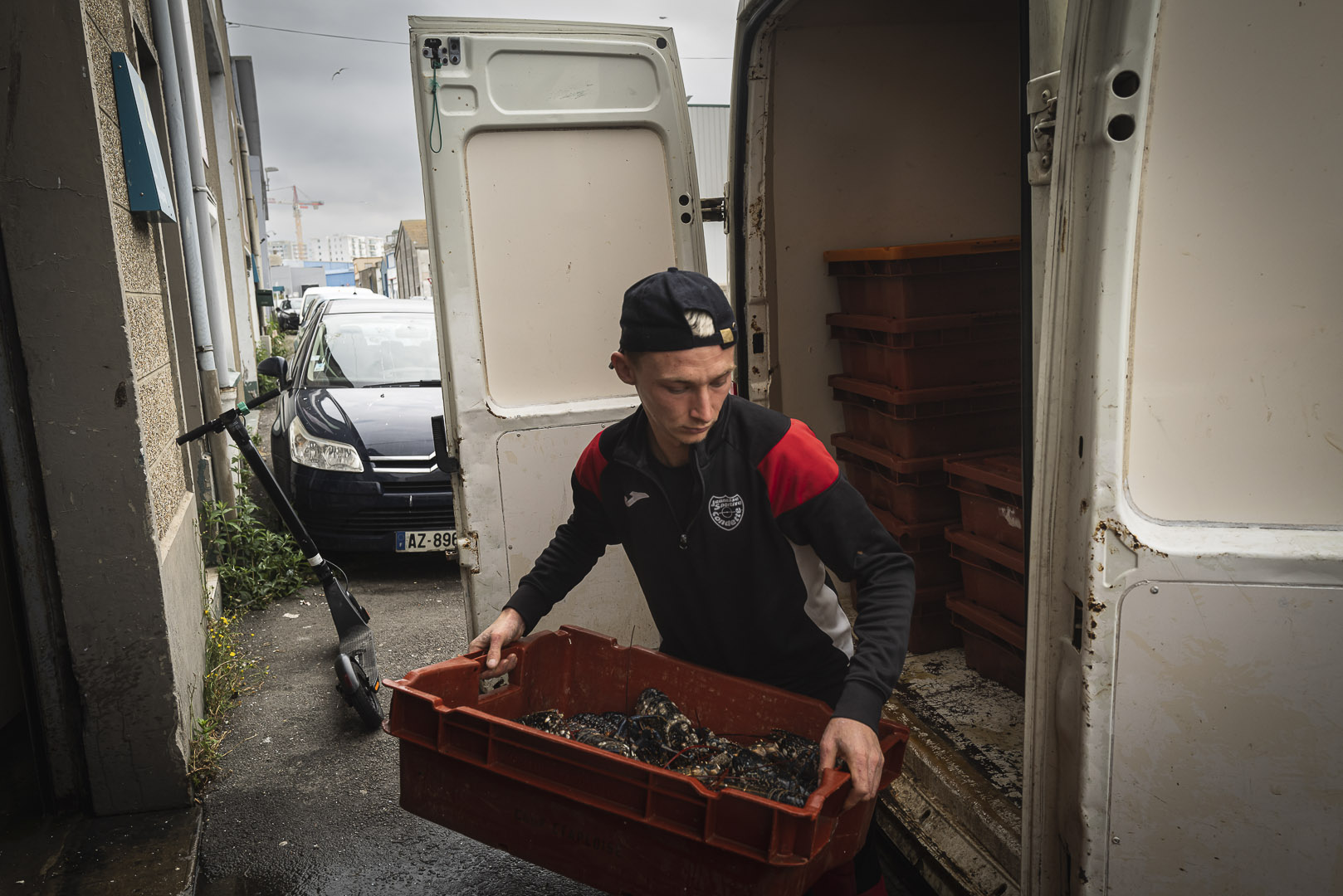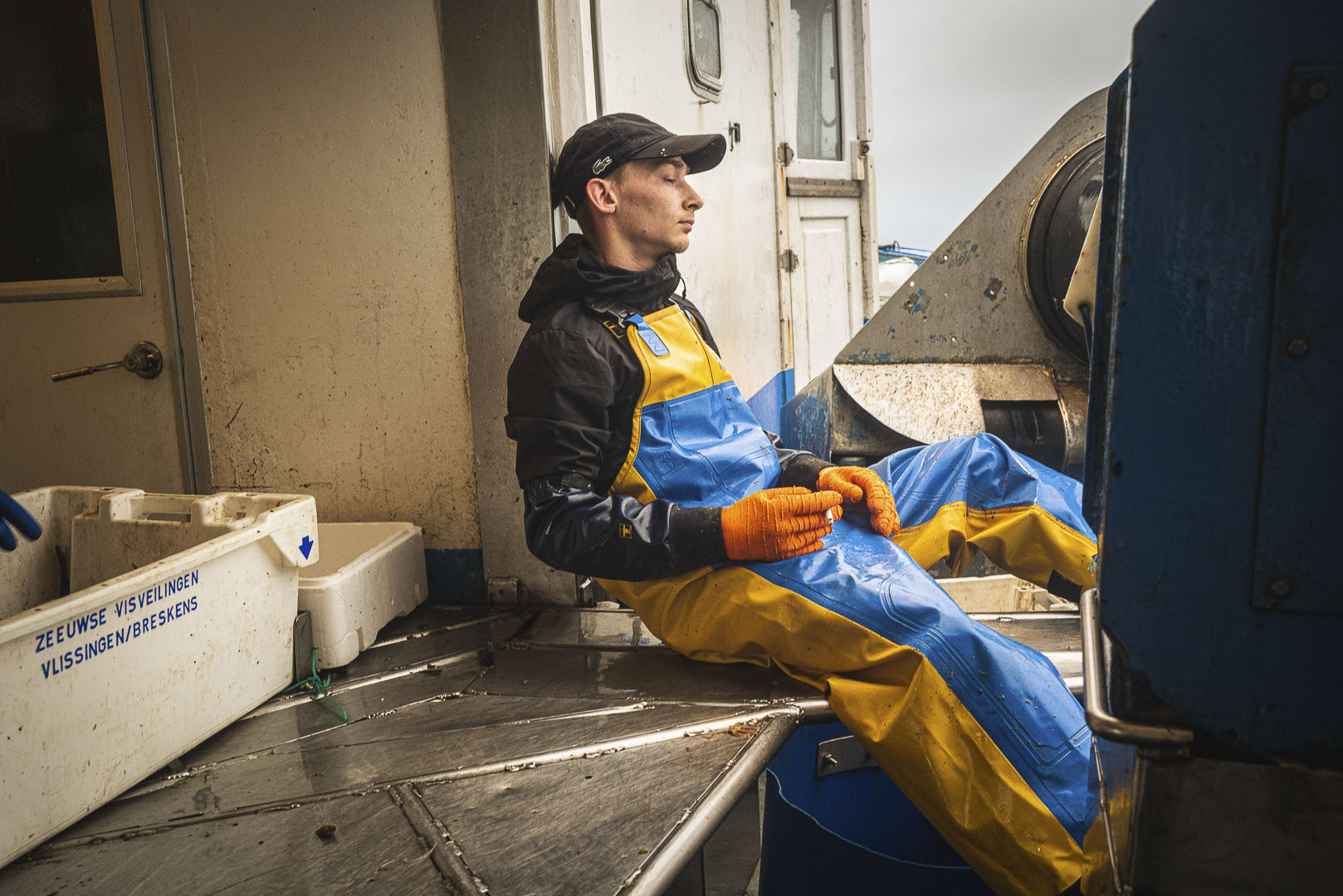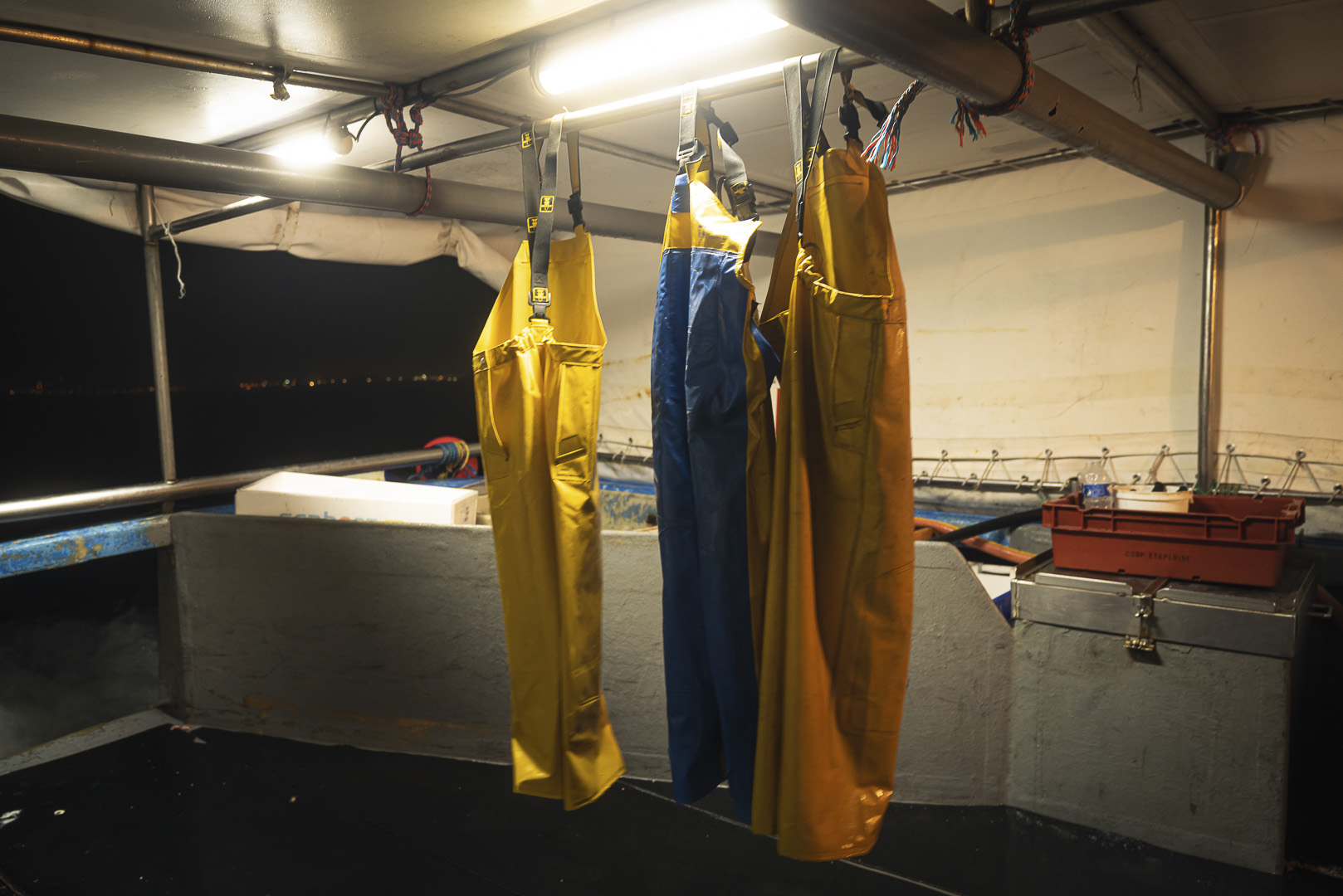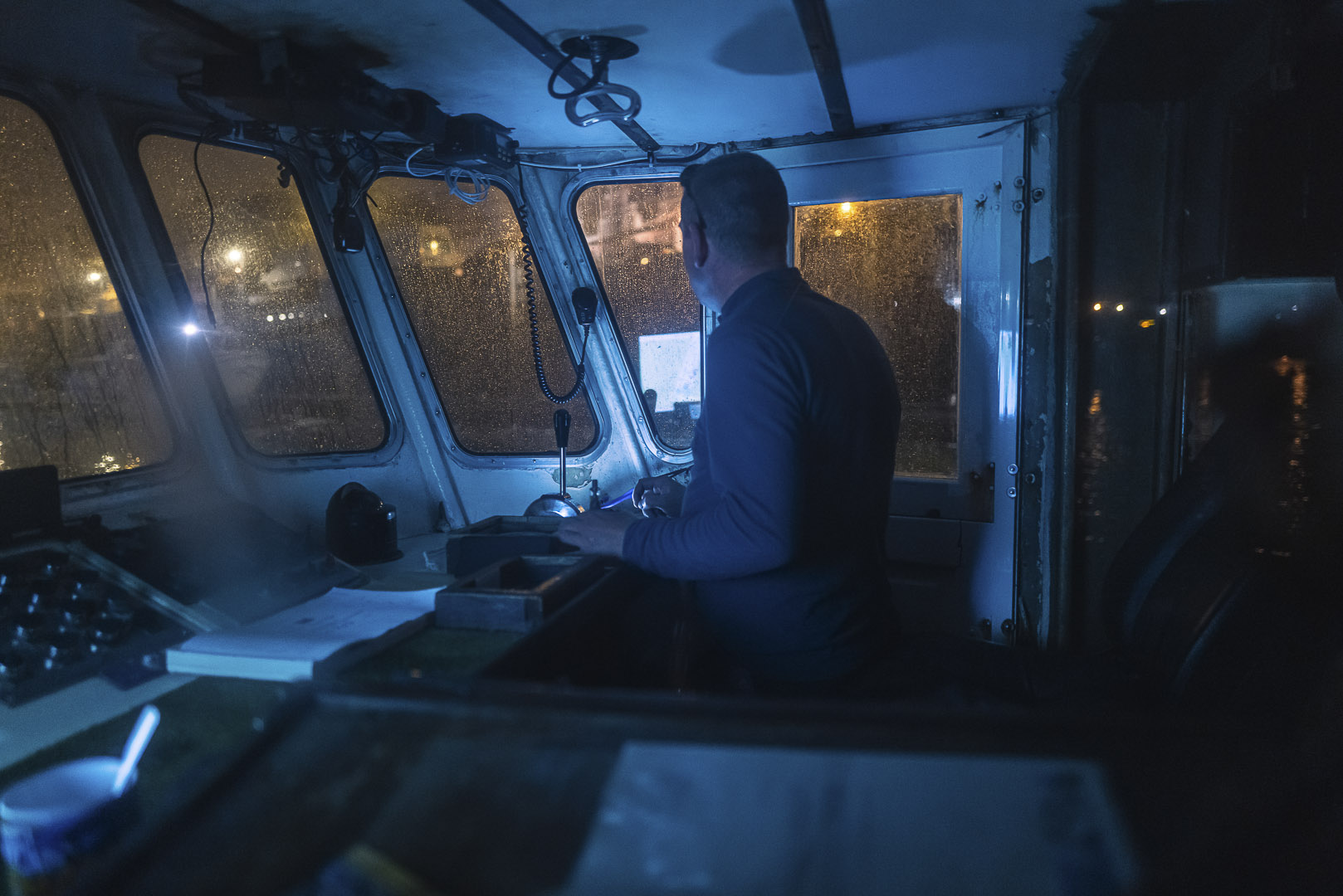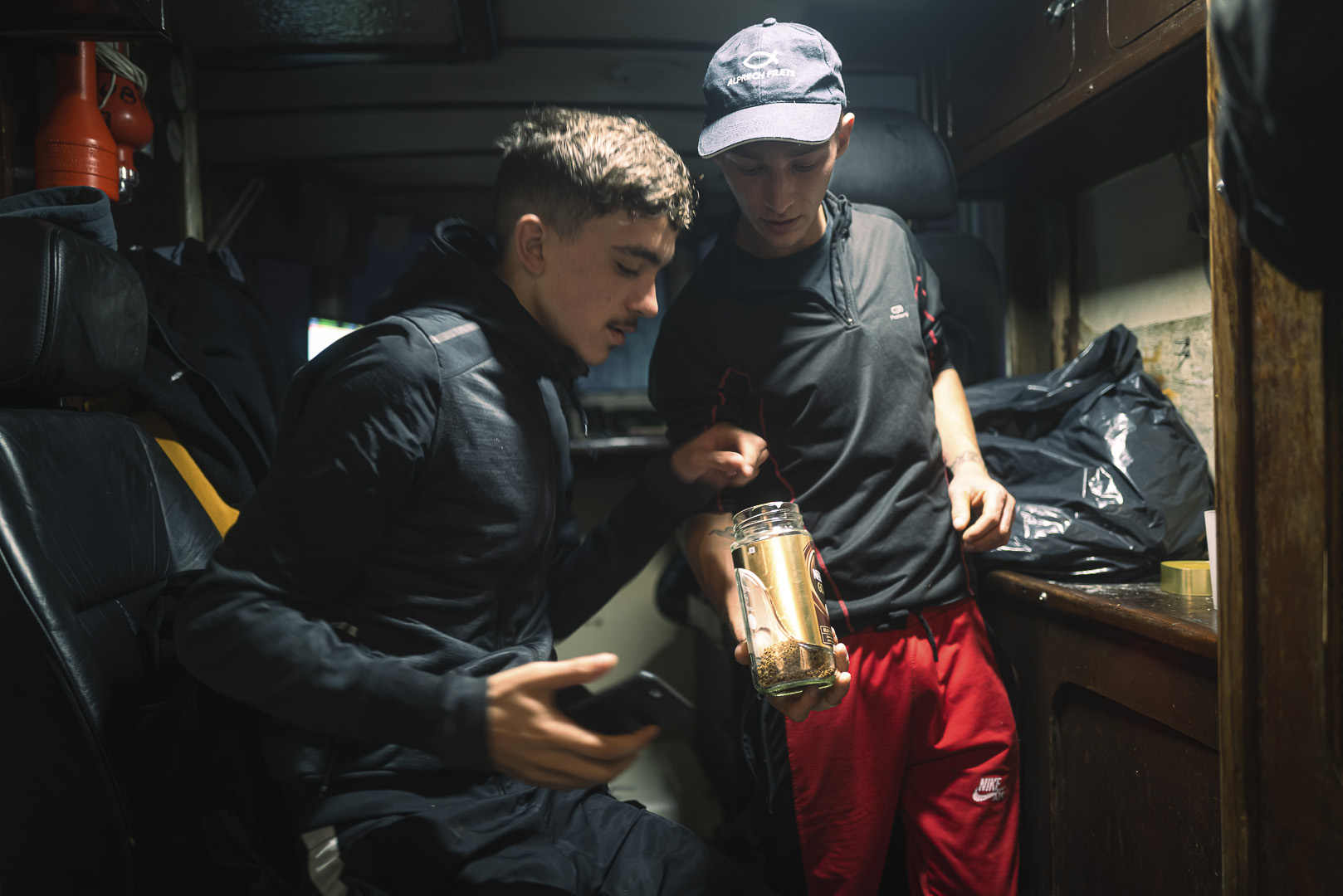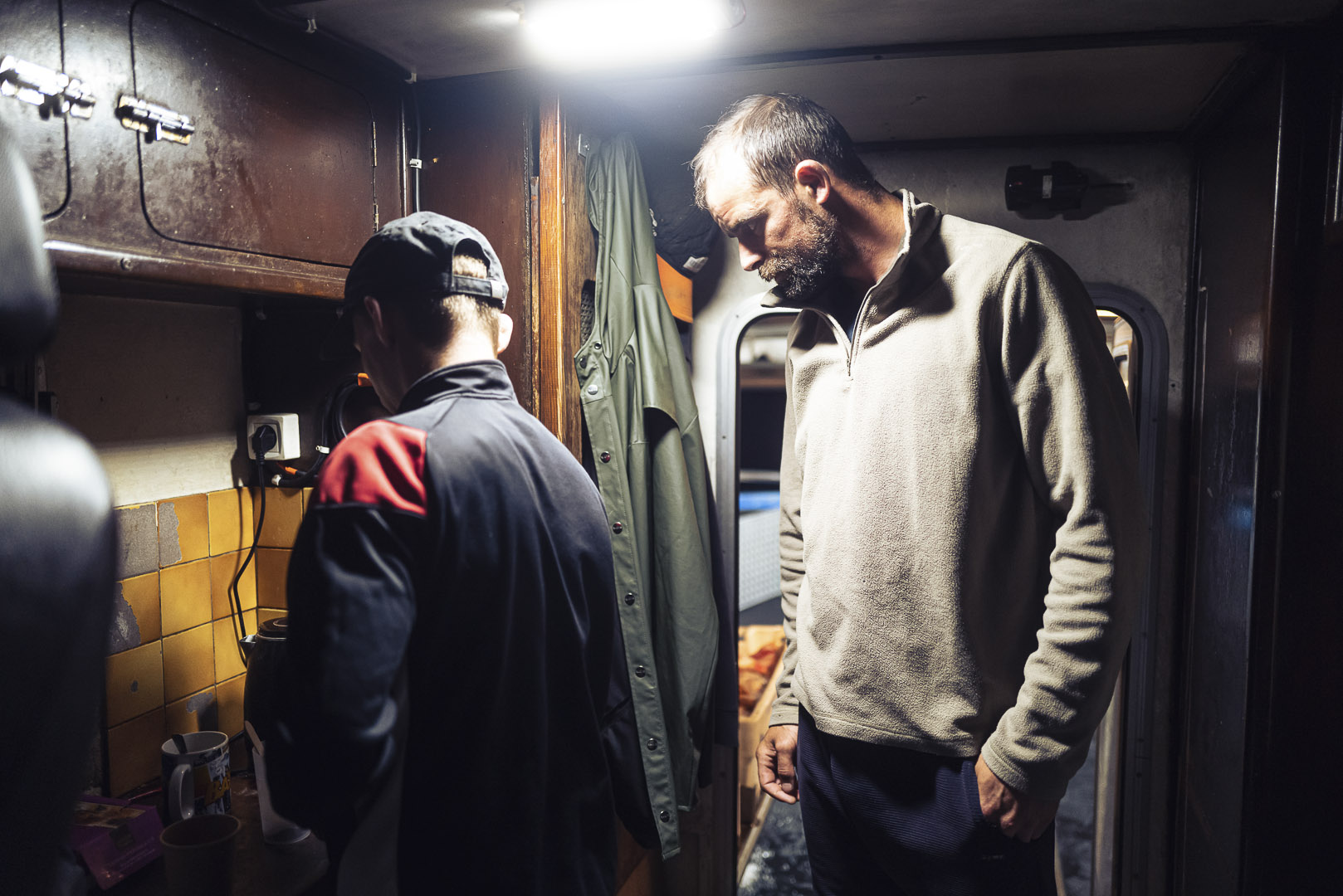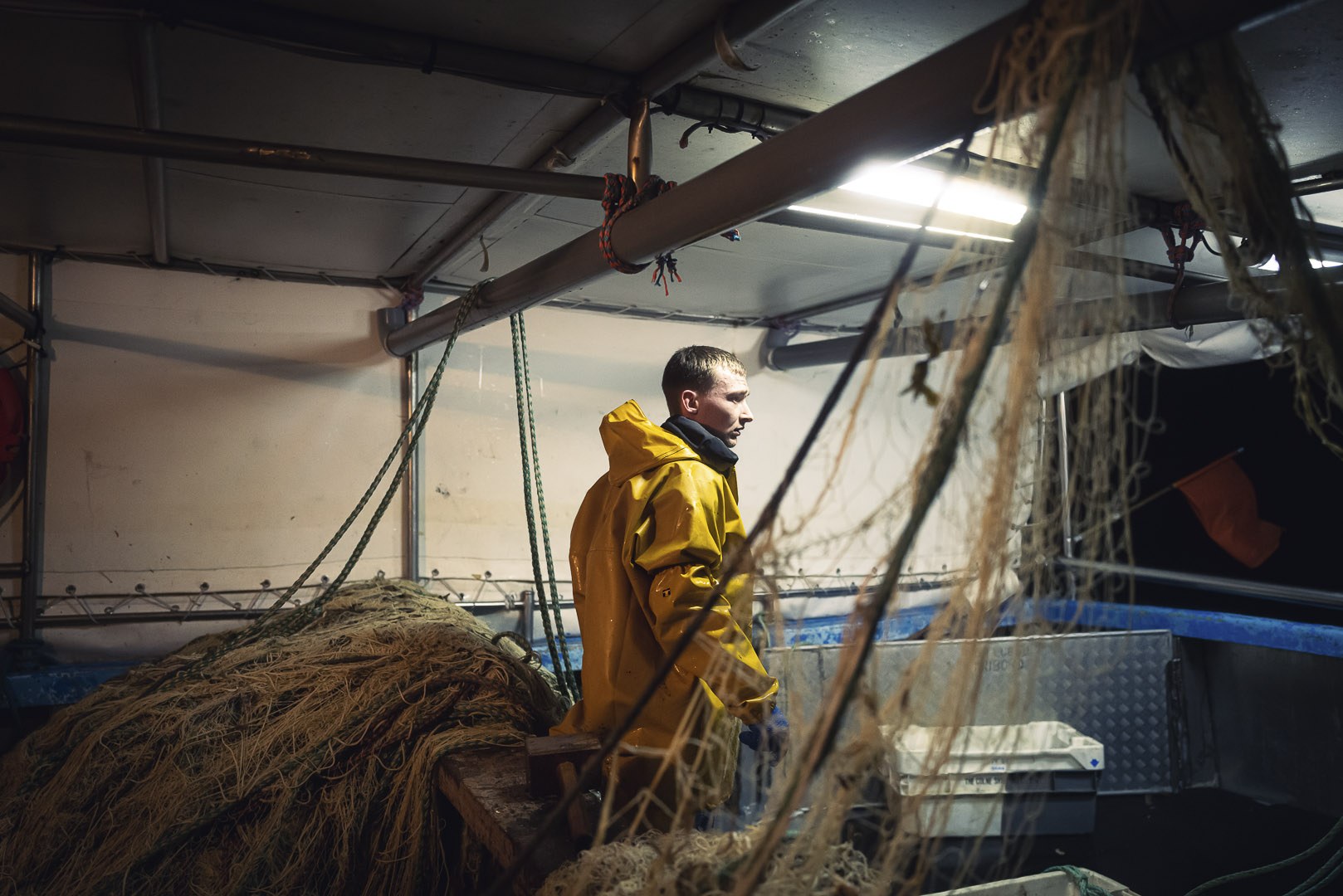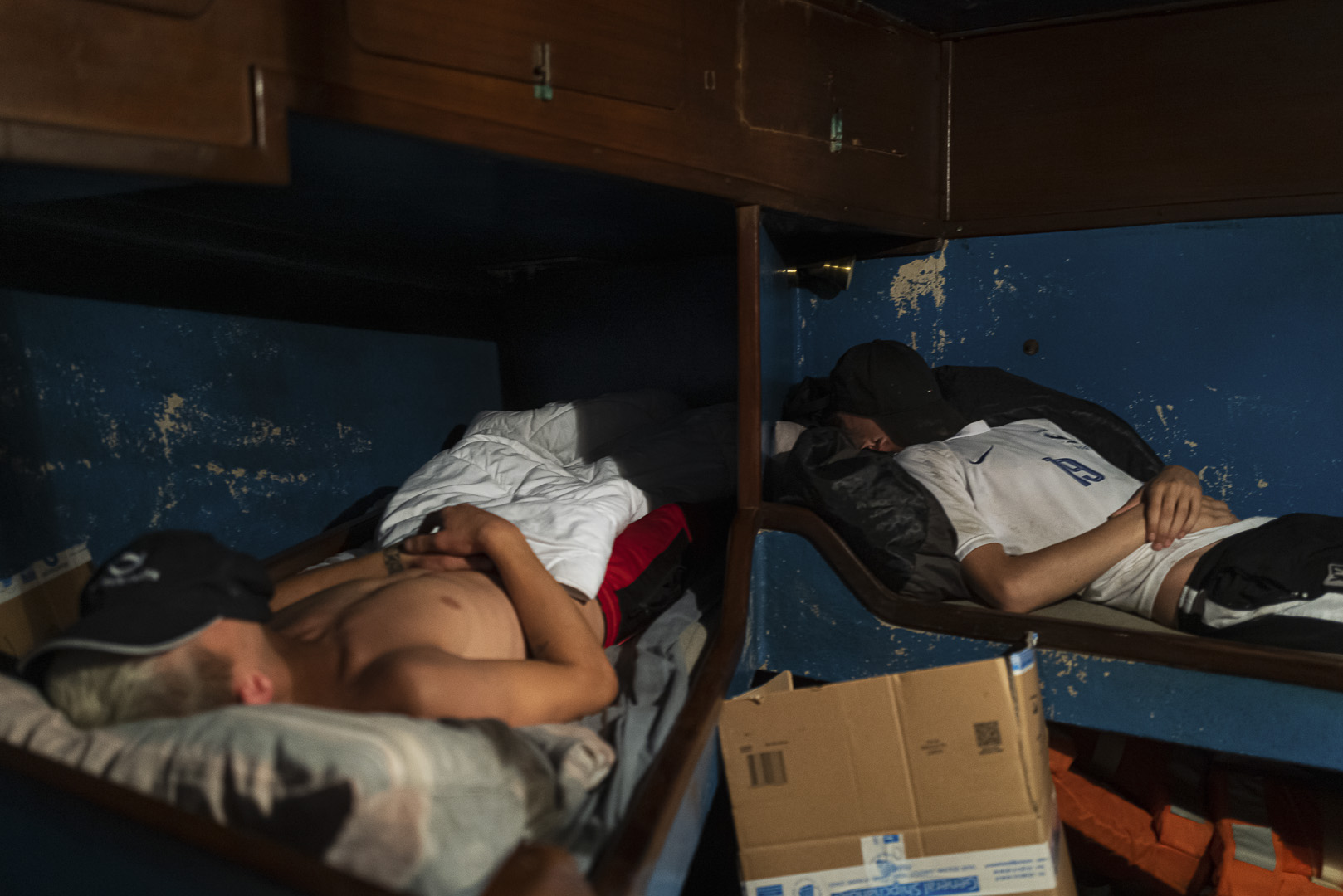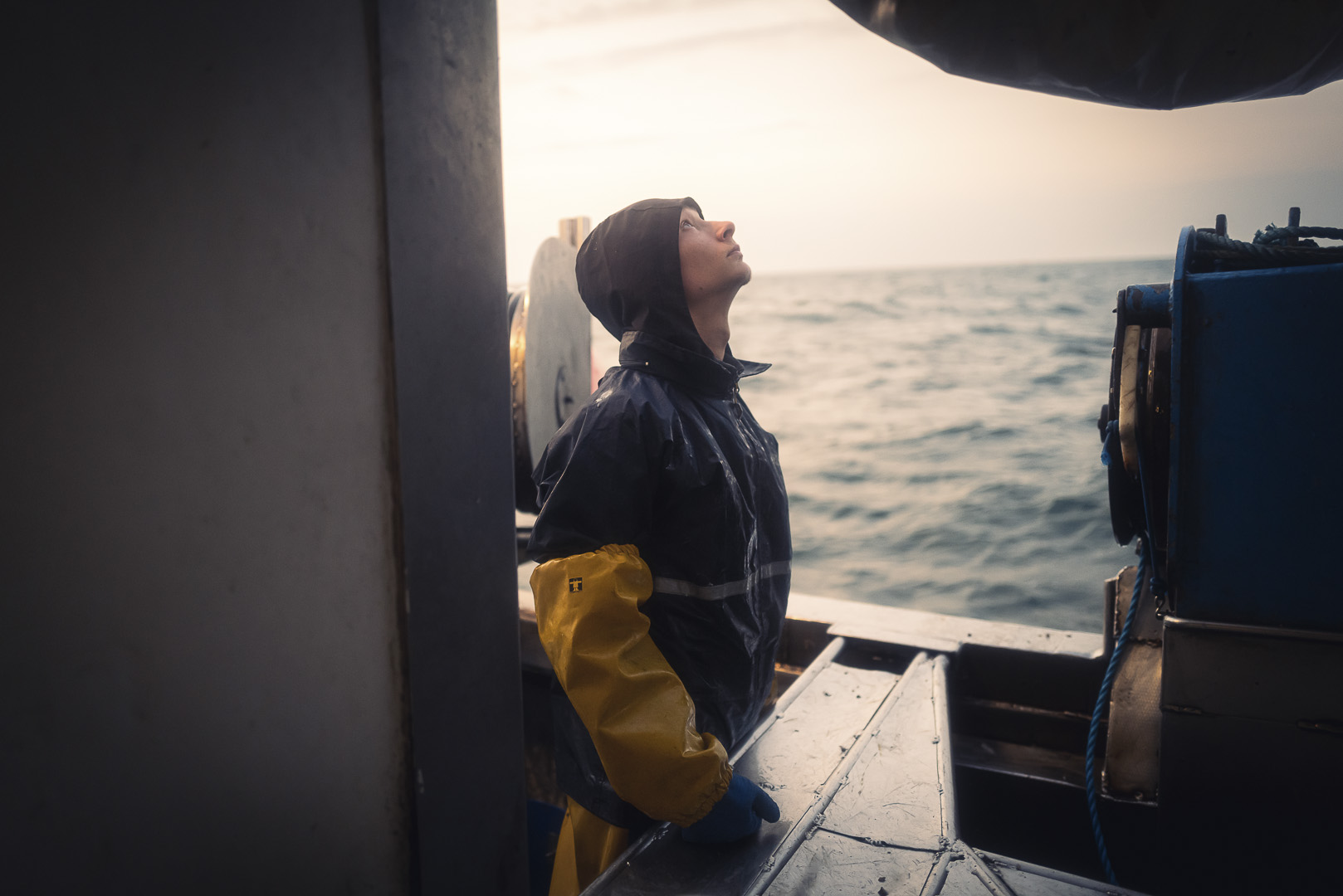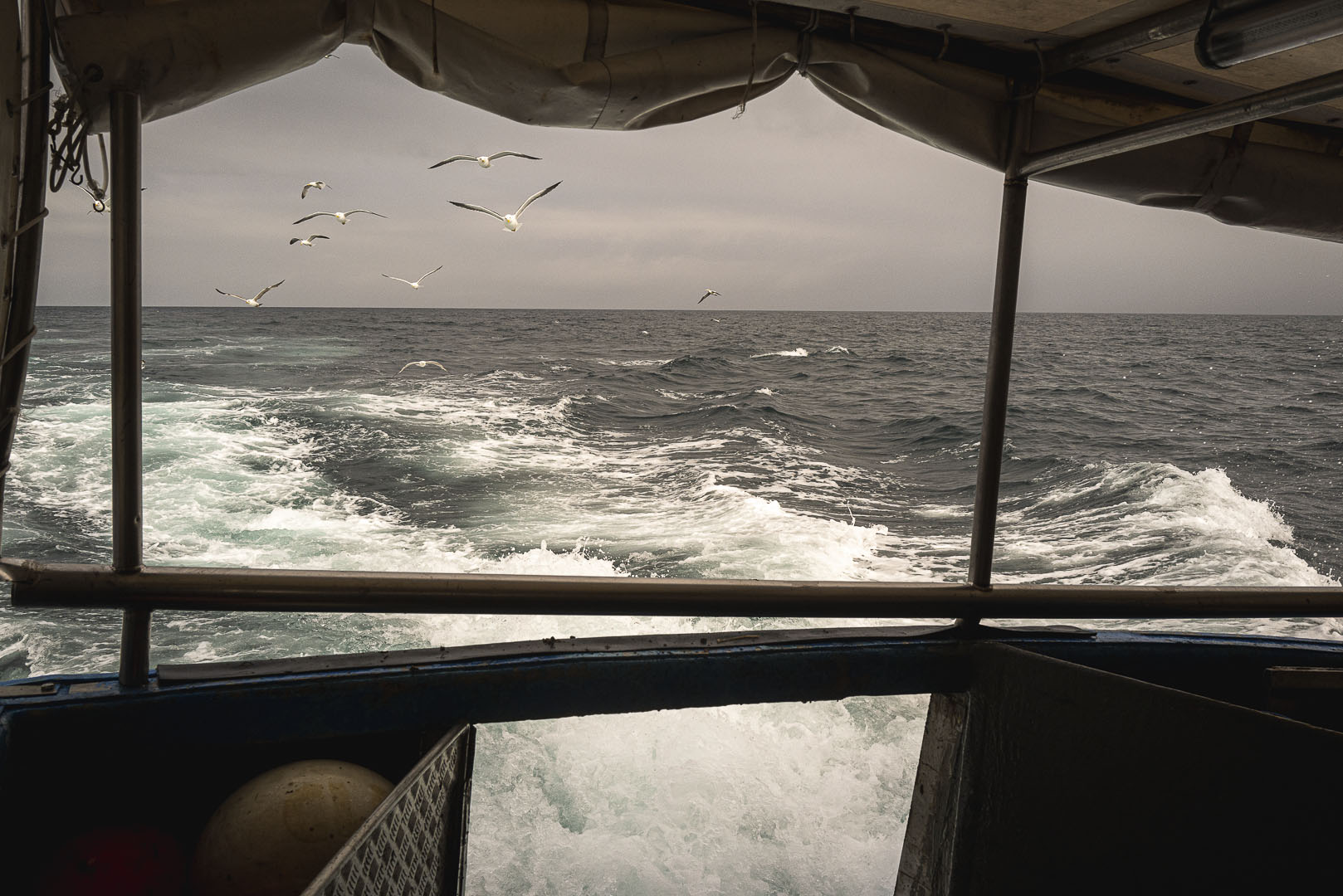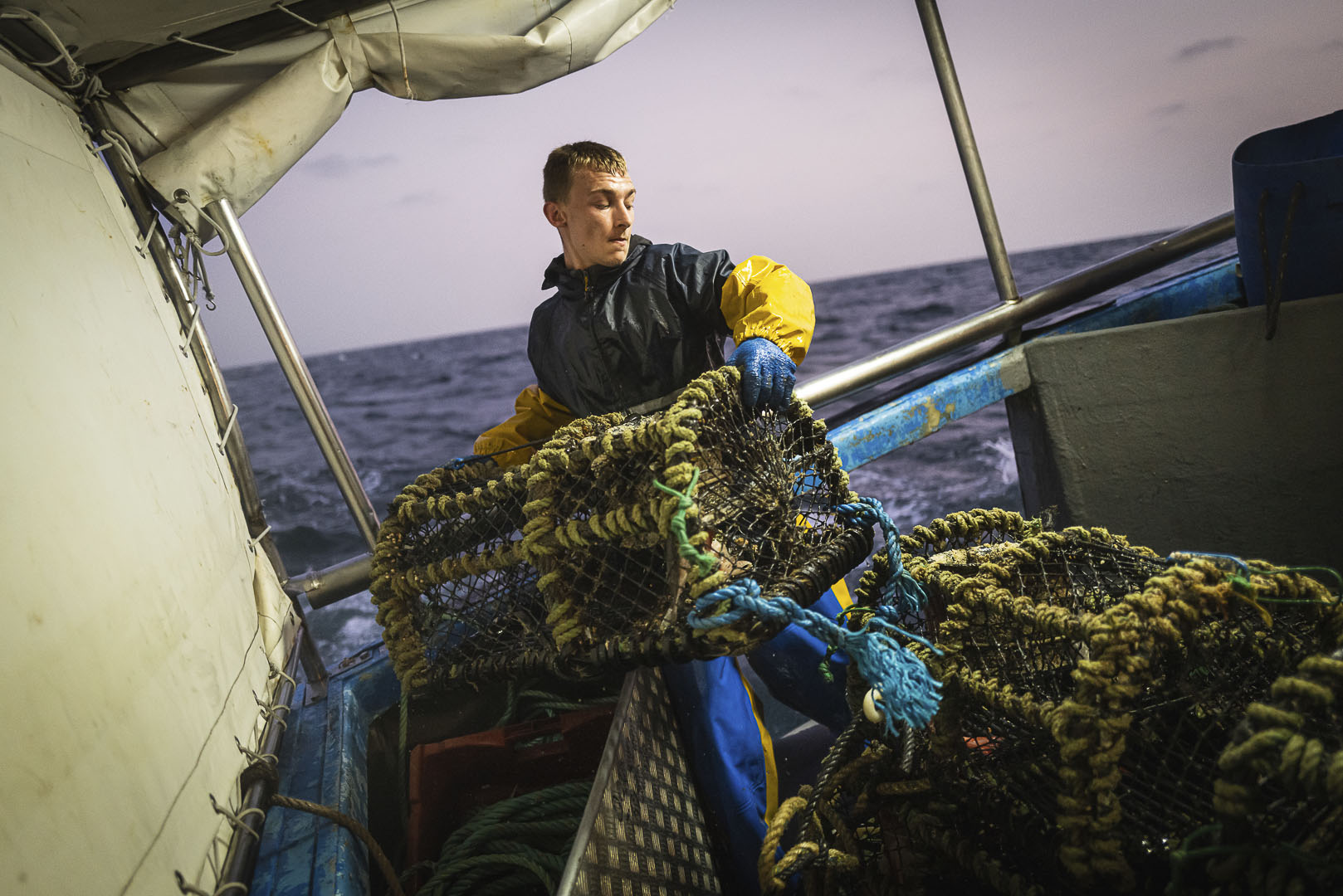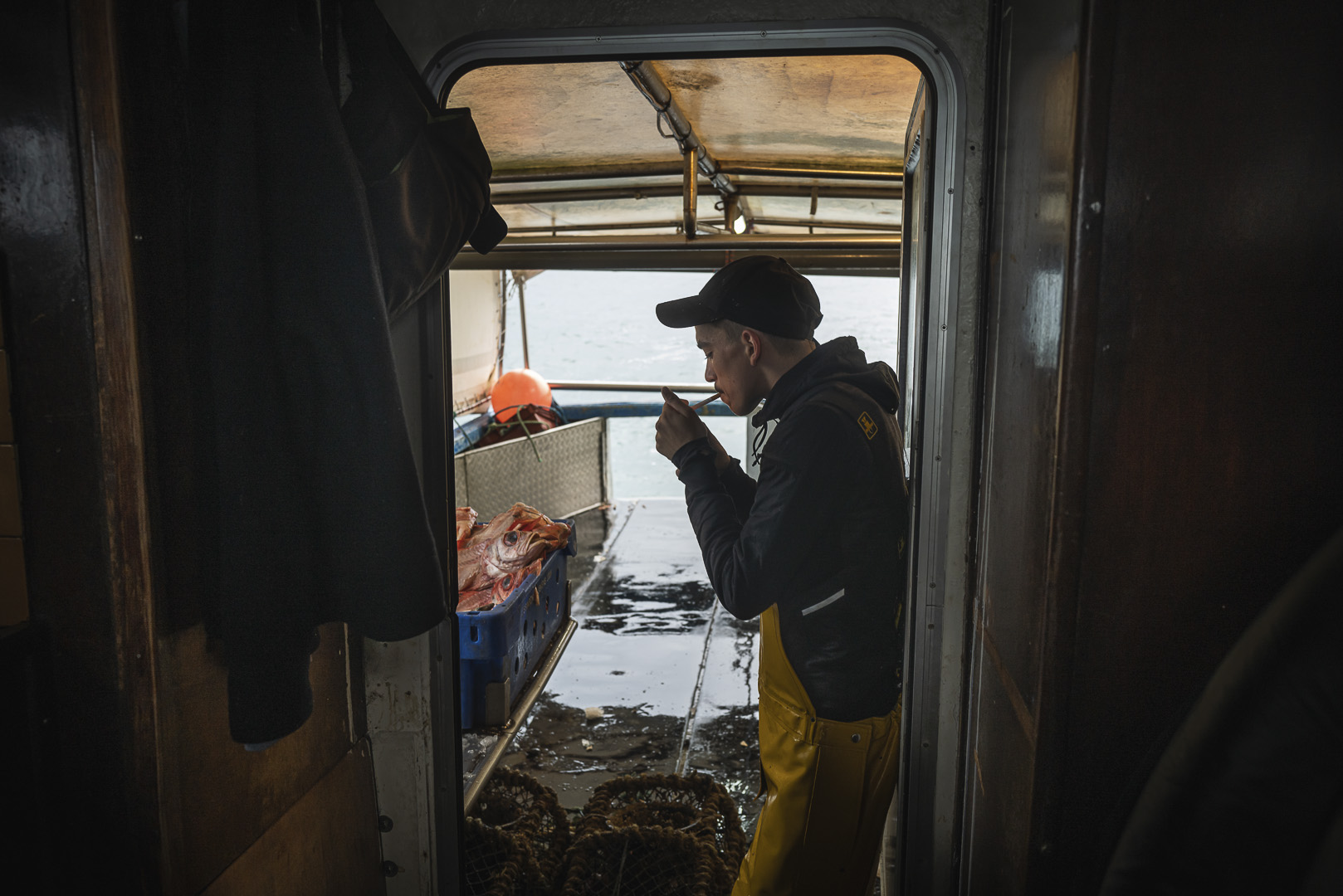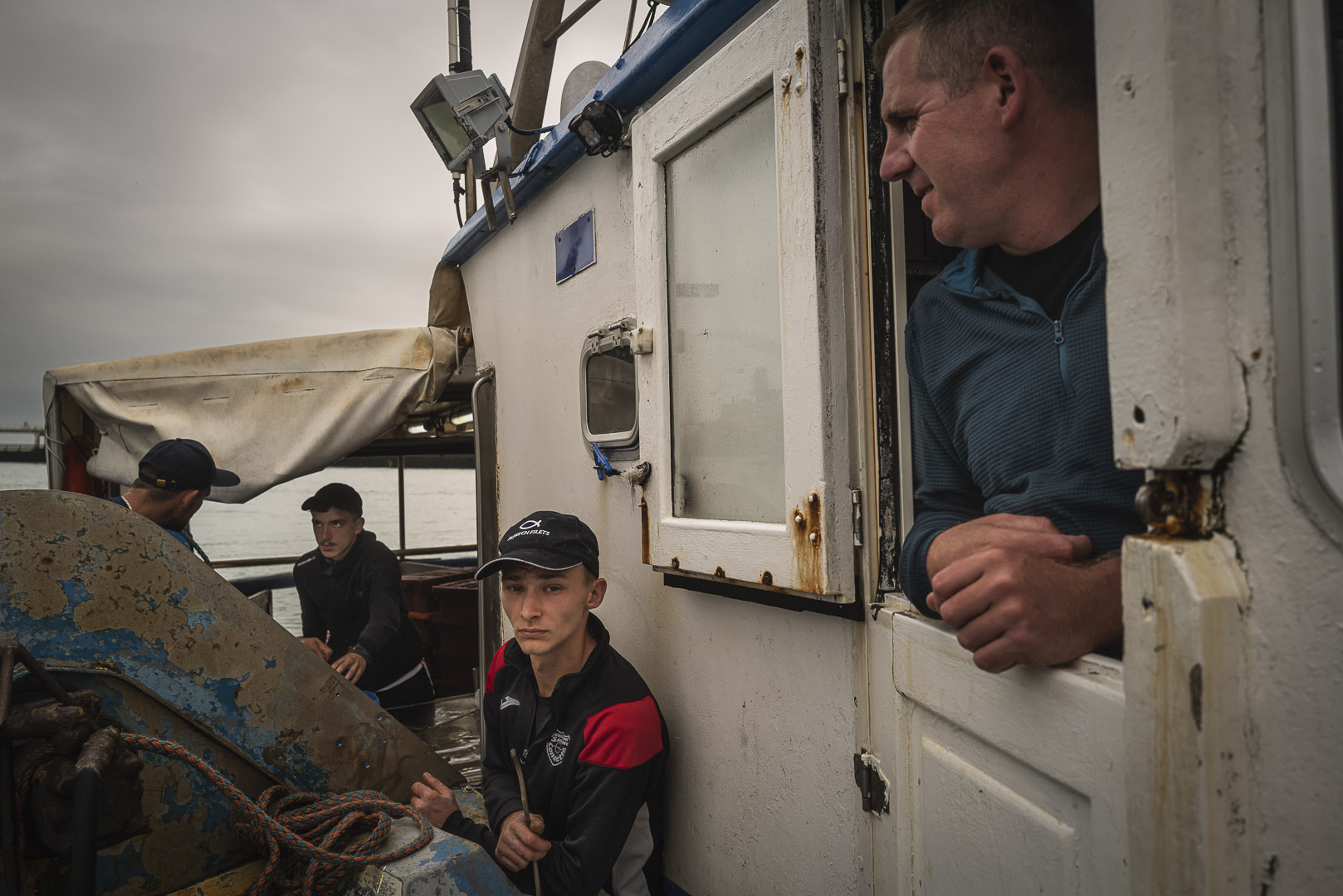The lost sailors, 2022
Since the Brexit, an authorization to enter British waters is mandatory for fishermen. In Boulogne-sur-Mer, whose port is highly dependent on British waters, these new measures are shaking up an industry that has already been greatly weakened by the health crisis.
The harbour of Boulogne-sur-Mer, the leading French fishing port, is more than 70% dependent on British waters for small-scale fishing and 96% for deep-sea fishing. However, the difficulty of access to the license (today, only 22 of the 120 boats of Boulogne-sur-Mer have obtained the authorization) now centralizes the entire fishing area on the French side, including for the Belgians and Dutch. These new measures have had disastrous consequences for the city economically, but also in human and environmental terms.
Since the announcement of the British authorities, the city has seen the appearance of huge vessels made for the open sea, which, while fishing, rake and destroy the entire seabed of the Boulonnais side.
Fish are getting scarcer, and fishing boats can no longer pay their crews a decent salary. In order not to go bankrupt, the fishermen impose a frantic work rhythm, sometimes only returning to the port for two hours before setting out again to sea. These exhausting working conditions are further amplified by the psychological strain for the sailors, who remember the attempts at intimidation and stone pelting between foreign boats that came to hunt in the same waters.
Through these images, accompanied by excerpts from his diary, Philippe Brault highlights the difficult working conditions of these fishermen, who live by the rhythm of the fishing seasons and the twists and turns of the Franco-British agreements.
This series was produced as part of the major national commission “Radioscopie de la France: regards sur un pays traversé par la crise sanitaire” (Radioscopy of France: glimpses of a country affected by the health crisis) funded by the Ministry of Culture and directed by the BnF.
Boulogne-sur-Mer, March 14, 2022.
Capécure is empty. In a few hours, the industrial city of Boulogne-sur-Mer, whose immense alleys live to the rhythm of the fishing industry, will once again be bustling with cranes, dockworkers, the din of loaded and unloaded crates, and the piercing cries of gulls.
Boulogne-sur-Mer, March 15, 2022, 11:00 a.m., back in the harbour.
“Until a few years ago, boats like this one supported the families of the entire crew with decent wages. Since the Brexit and the requirement of a license to work in British waters, this has become impossible. Today, of the 120 boats in the port of Boulogne-sur-Mer, only 22 have obtained the sesame.”
Christophe Marcq, from a family of fishermen, now captain of the Don Lubi II.
April 28 in the night.
We left the Gambetta quay in Boulogne-sur-Mer. Christophe, captain of the “Don Lubi II”, tells me that he has finally obtained his license authorizing him to come and fish in English waters. This was a great relief after several months of waiting. The artisanal fishery of the Boulogne sailors still depends on British waters for more than 70% of its catch.
Stephen, the youngest of the crew, at dawn. As we cruise off the coast of England, the sun breaks through the fog.
That day, the catch was not enough to cover all the costs. Olivier mentions the large purse seiners that fish closer and closer to the coast: “Normally, these boats are made for the open sea, they are enormous, much larger than ours. With their technique, they rake and destroy the bottom of the sea. Because of this, our profession of artisanal fisherman is dying.”
